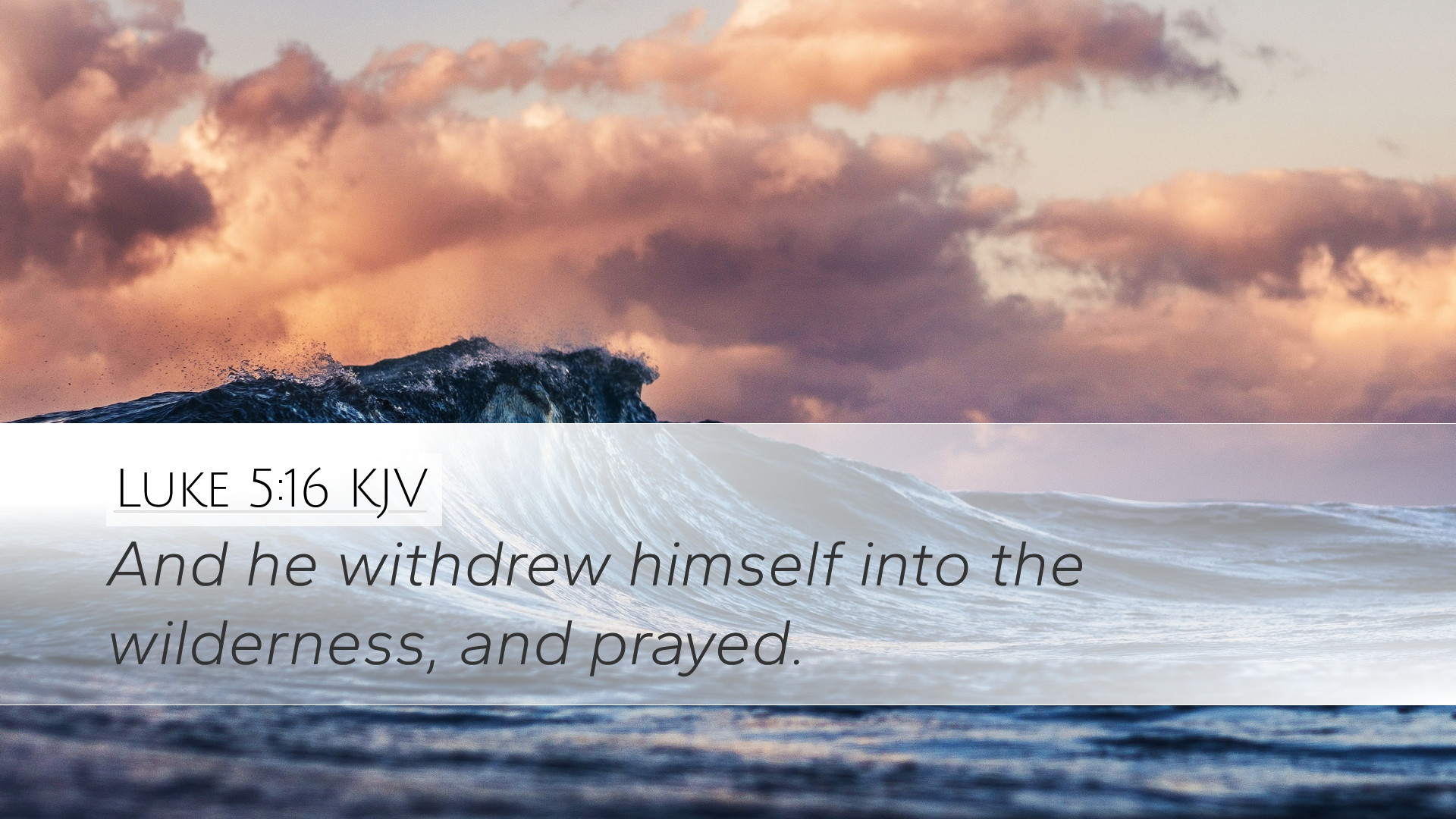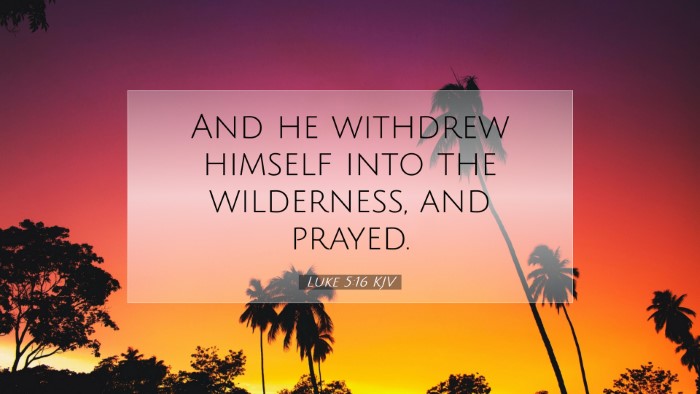Commentary on Luke 5:16
Bible Verse: "But Jesus often withdrew to lonely places and prayed." (Luke 5:16, NIV)
Introduction
This verse from the Gospel of Luke presents a profound insight into the life of Jesus, particularly His relationship with solitude and prayer. The significance of Jesus withdrawing for prayer cannot be overstated, as it reveals His dependence on the Father and models a vital aspect of a believer's life.
Contextual Overview
Luke presents Jesus in a multifaceted character, as an active preacher, healer, and a man of deep spiritual reflection. Following His miraculous activities and the growing popularity among the people, this verse highlights a key practice of Jesus: retreating into solitude for communion with God.
Insights from Commentaries
Matthew Henry
Matthew Henry emphasizes that Jesus exemplifies the importance of withdrawing from the busyness of life. He notes that despite the pressing demands of His ministry, Jesus prioritized prayer. Henry explains that "in the midst of His labors, He found time to pray," which underscores the necessity of spiritual replenishment for effective ministry.
Albert Barnes
Albert Barnes remarks on the term "withdrew," explaining that it signifies Jesus’ intentional decision to seek out solitude. He points out that Jesus often retreated to "lonely places," suggesting that such places are essential for spiritual reflection. Barnes asserts that solitude allows individuals to have undisturbed time with God, which is critical for spiritual growth and guidance.
Adam Clarke
Adam Clarke provides a broader theological reflection on prayer in this context. He observes that prayer is not merely a ritual but an intimate communication with God. Clarke asserts, "If Jesus, the Son of God, found it necessary to pray, how much more must we, who can do nothing without Him?" This illustrates the humility and dependence required in a Christian's prayer life.
Theological Implications
The act of withdrawing to pray shows Jesus’ reliance on the Father and serves as a model for believers. It signifies that genuine ministry flows from a life steeped in prayer. Pastors and leaders are encouraged to take this example seriously, ensuring they reserve adequate time for prayer away from the demands of ministry.
Prayer and Solitude
- Importance of Solitude: In a world filled with distractions, the withdrawal into solitude is necessary for focused prayer and reflection.
- Communion with God: Prayer is a two-way communication that deepens the relationship between believers and God.
- Preparation for Ministry: Just as Jesus prayed before significant events, pastors should pray for guidance and strength in their ministry endeavors.
Practical Applications
This scriptural insight leads to practical applications for Christians seeking to enrich their spiritual lives:
- Establish a Routine: Following Jesus' example, believers should establish a routine that includes regular times of prayer, ideally in a quiet place free from interruptions.
- Prioritize Spiritual Health: Just as physical health is important, the health of the spirit should be prioritized, realizing that prayer is foundational to receiving spiritual nourishment.
- Seek Guidance: When facing decisions or challenges, believers are encouraged to withdraw and seek divine guidance through prayer, emulating Jesus’ practice.
Conclusion
Luke 5:16 serves as a powerful reminder of the necessity and power of prayer in the life of a believer. Through insights shared by esteemed commentators, it becomes evident that solitude and prayer are not optional but essential components of a faithful Christian walk. For pastors and theologians alike, this verse showcases how the Son of God modeled a prayerful life, inspiring believers to follow in His footsteps.


